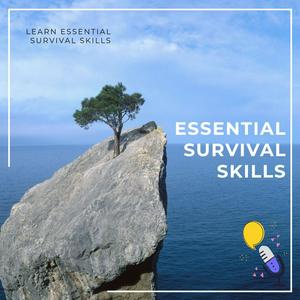This episode examines how extreme heat becomes a deadly threat in survival situations, turning the human body itself into the main danger. Heat kills quietly through dehydration, exhaustion, and organ failure, often before victims realize they are in serious trouble.
The episode explains the stages of heat illness, beginning with dehydration, progressing to heat exhaustion, and finally to life-threatening heatstroke. Early symptoms such as dizziness, muscle cramps, nausea, and heavy sweating are presented as critical warning signs that must never be ignored. When sweating stops and confusion begins, immediate emergency cooling is required.
Prevention is emphasized as the most effective survival strategy. Survivors must manage sun exposure by seeking or creating shade, covering the head and neck, and wearing light-colored, loose clothing. Water management is crucial — small, frequent sips are more effective than infrequent large drinks, and electrolyte balance must be maintained when possible.
Movement timing plays a major role in survival. Activity should be limited to early morning, evening, or nighttime, while midday heat must be avoided. Slow, steady movement conserves water and energy better than rushing.
When heat exhaustion or heatstroke occurs, rapid cooling becomes the priority. Shade, wet cloths, airflow, and water immersion are key methods. Vehicles and urban environments are highlighted as extreme heat traps, especially during disasters and power outages.
The episode also explores how heat weakens judgment, leading to dangerous decisions. Recognizing mental fog as a warning sign is vital.
The core message is clear: extreme heat cannot be defeated by willpower. Respecting the body’s limits, managing exposure, and acting early are what keep survivors alive.


